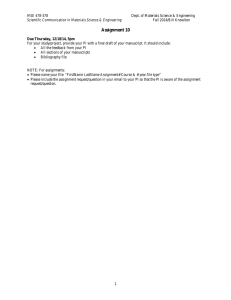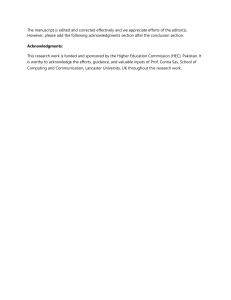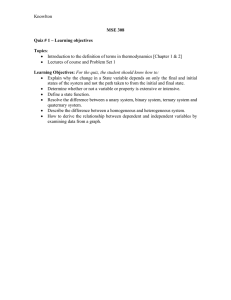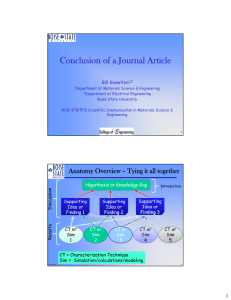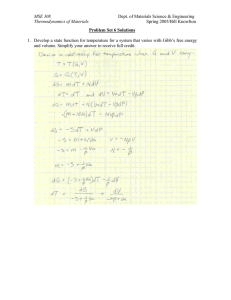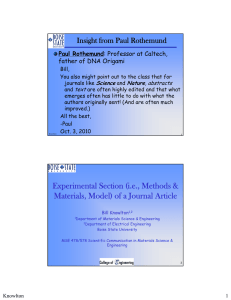Acknowledgments & References of a Journal Article
advertisement
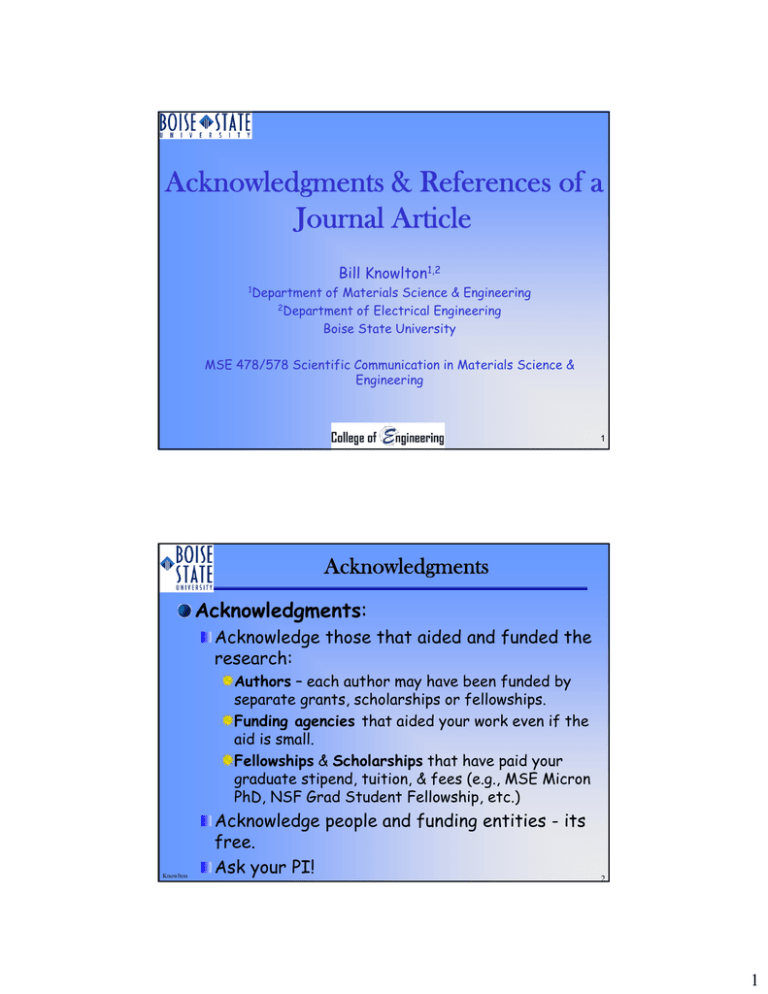
Acknowledgments & References of a Journal Article Bill Knowlton1,2 1Department of Materials Science & Engineering of Electrical Engineering Boise State University 2Department MSE 478/578 Scientific Communication in Materials Science & Engineering 1 Acknowledgments Acknowledgments: Acknowledge those that aided and funded the research: Authors – each author may have been funded by separate grants, scholarships or fellowships. Funding agencies that aided your work even if the aid is small. Fellowships & Scholarships that have paid your graduate stipend, tuition, & fees (e.g., MSE Micron PhD, NSF Grad Student Fellowship, etc.) Knowlton Acknowledge people and funding entities - its free. Ask your PI! 2 1 Acknowledgments Acknowledgments: Check spelling: USA – “Acknowledgments” British/European – “Acknowledgements” Knowlton 3 Acknowledgments & References References: Reference only the most significant of published literature Reference the earliest work Should have an actual copy of the paper Check all parts of every reference against the original publication Before the manuscript is submitted At the proof stage Knowlton 4 2 Acknowledgments & References References: Typically, there are many more mistakes in the Reference section of a manuscript than anywhere else in the manuscript Be complete and ensure that the references are correct and the format is correct Major mistakes to avoid: Incorrectly citing a reference Incorrect volume, year, title, etc. Ref. has nothing to do with the subject in the sentence, table, plot, or paragraph that you’ve reference. Not citing pertinent work that is in the literature Not citing the first work covering the subject that you are citing This can cause: Your paper to be rejected Proposals to be declined Potential collaborations to not materialize Knowlton 5 Tenses: Tenses:[3] Present tense: For the general case and statements on what is currently known. E.g., statements that are: General knowledge Widely accepted Those that can be referenced in the present tense Past tense: Experimental results Observations that were made during your study Knowlton 6 3 References for this overview: [1] Eschew Obfuscation: Advice on Writing Clearly, Larry J. Forney, Dept. of Biological Sciences, Professor Trish Hartzell, PhD. Department of Microbiology, Molecular Biology, and Biochemistry, University of Idaho, Moscow, ID; presented at the 2008 INBRE Conference, Boise, ID [2] Day, R. “How to write and publish a scientific paper”, 5th ed. (Orynx Press, 1998) [3] Michael Jay Katz, "From Research to Manuscript: A Guide to Scientific Writing" Springer; 2nd ed. edition (January 29, 2009) pp. 210. Knowlton 7 4
